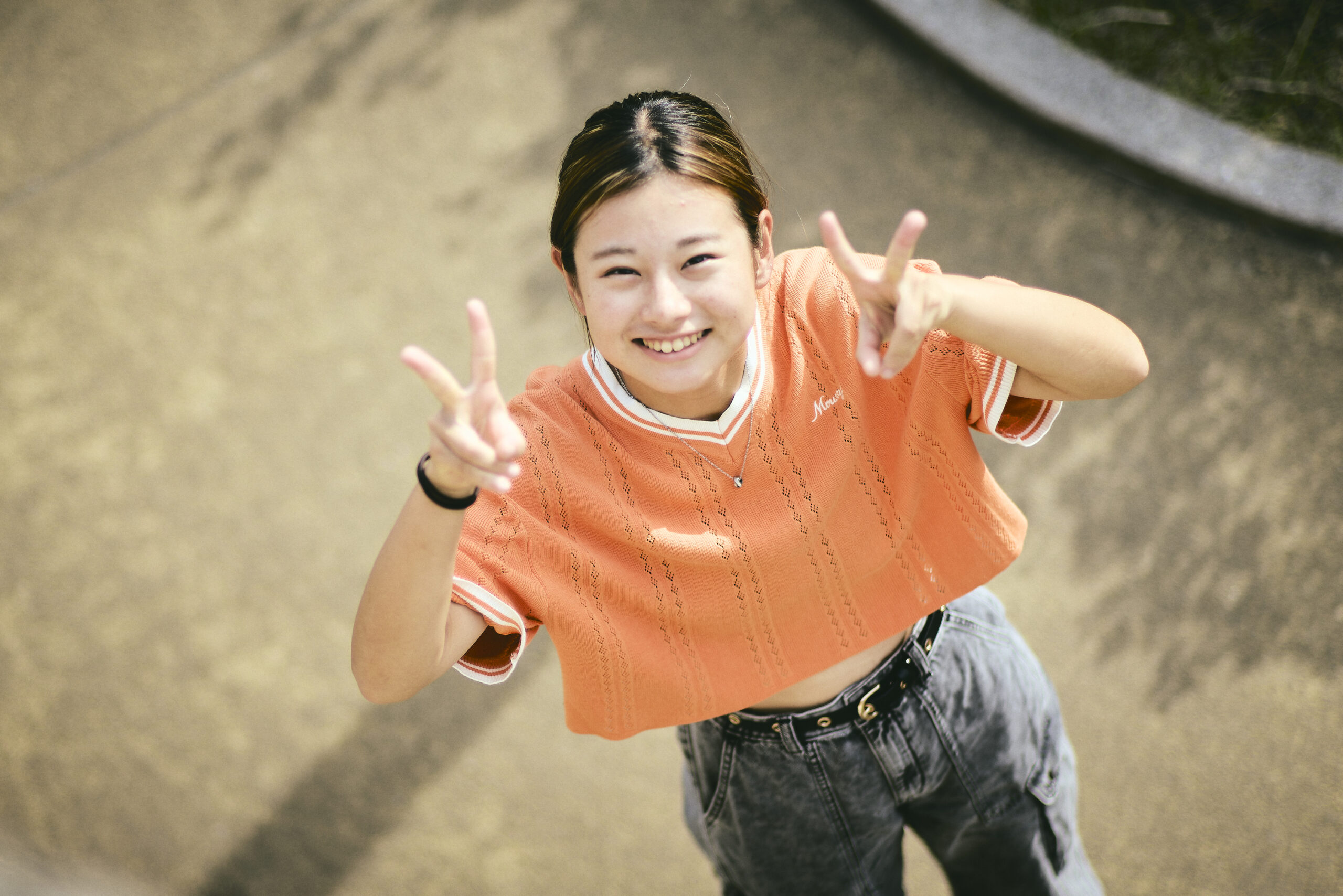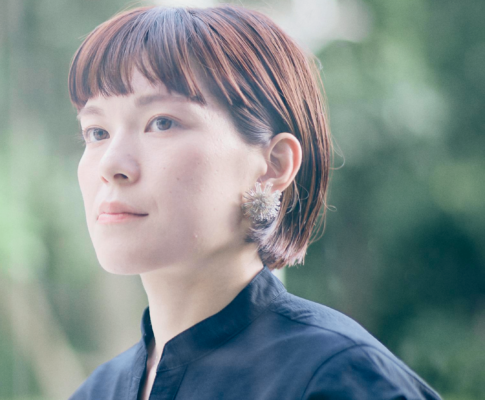目次
- Indoor volleyball was “too much time to spare”
- Height of 155 cm is her strong point
- That one victory gave me confidence, and that one defeat gave me determination
- From longing to promise to reality
- Ready to bring it on, full of winning spirit: the origin of a small fighter
- I’m in love with muscles and K-pop
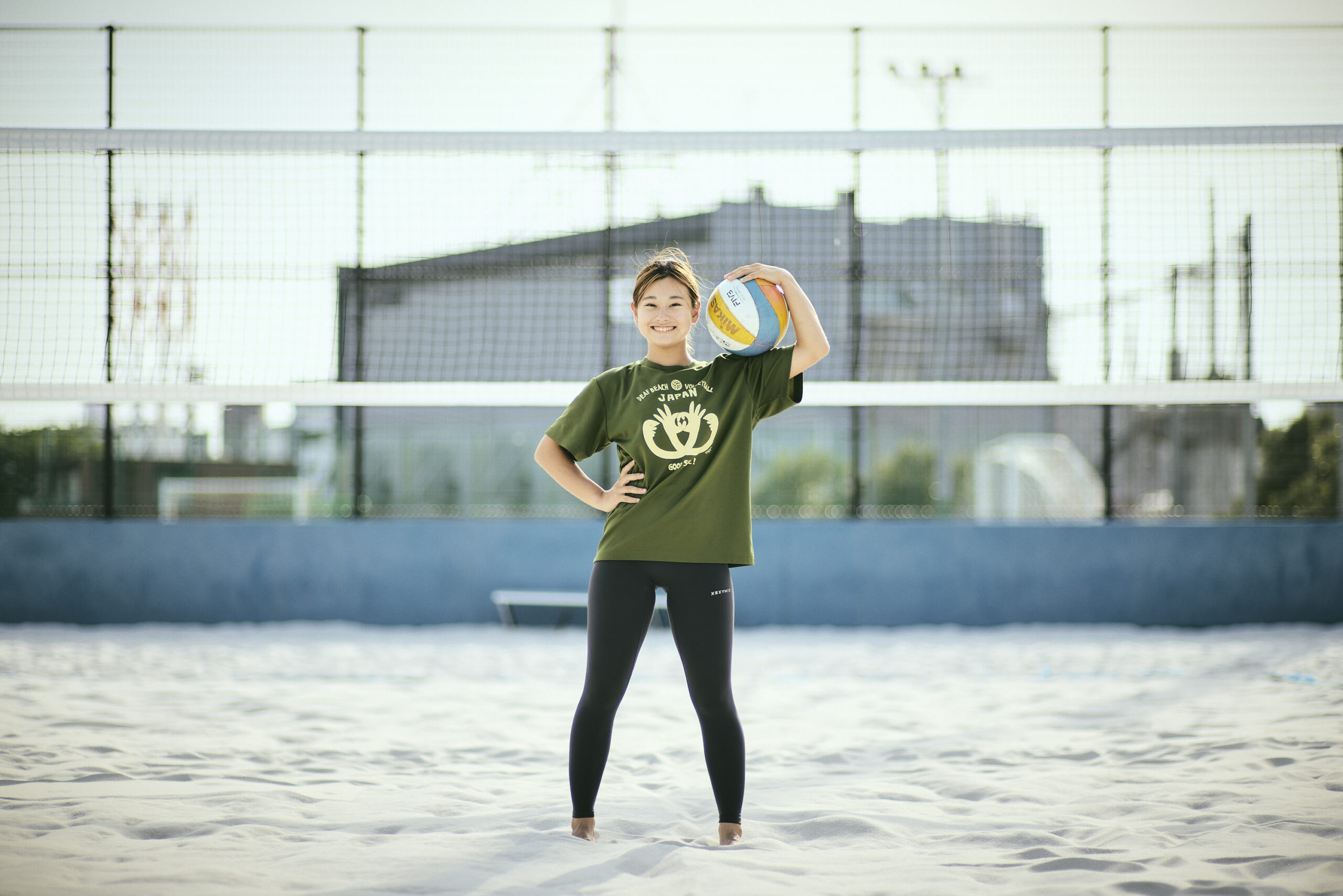
Tamaki Ito
Born in Tokyo in 2004. Belongs to LIVZON (TAISEI ONCHO CO.,LTD.).
She has congenital hearing loss and has been attending a school for the deaf since the third year in elementary school. She graduated from the Tokyo Metropolitan Central School for the Deaf and is currently studying at Daito Bunka University.
She started playing indoor volleyball in junior high school and later switched to beach volleyball. Paired with her high school classmate Karin Hori, she consecutively won the All Japan Deaf Beach Volleyball Championship in 2023 and 2024, demonstrating her top-class ability in Japan. She finished 8th in the World Championships and was the runner-up in the International Friendly Tournament in Tanoura and has also achieved good results in international tournaments.
She was the runner-up at the Tokyo 2025 Deaflympics Japan National Team Selection Tournament held in April this year. She will aim to win her first medal as a Japanese at the Tokyo 2025 Deaflympics which will be the first time to be held in Japan.
Indoor volleyball was “too much time to spare”
――I heard that you first started indoor volleyball, but what inspired you to start?
I started doing indoor volleyball when I was in the first year of junior high school. There was also a reason because my favorite senior was in the volleyball club, but to be honest, I chose it by the process of elimination. At the junior high school I attended, there were only four clubs: baseball, table tennis, volleyball, and life and culture club. The baseball club was only for boys, so it was out of the question. I love exercising, so cultural clubs were also out of the question! I’m not good at table tennis, and my hands sweat so much that my racket flies away (laughs). In that case, the only thing left was the volleyball club. However, as I continued to do so, my desire to play more matches and play an active role became stronger. Before I knew it, I was obsessed with it.
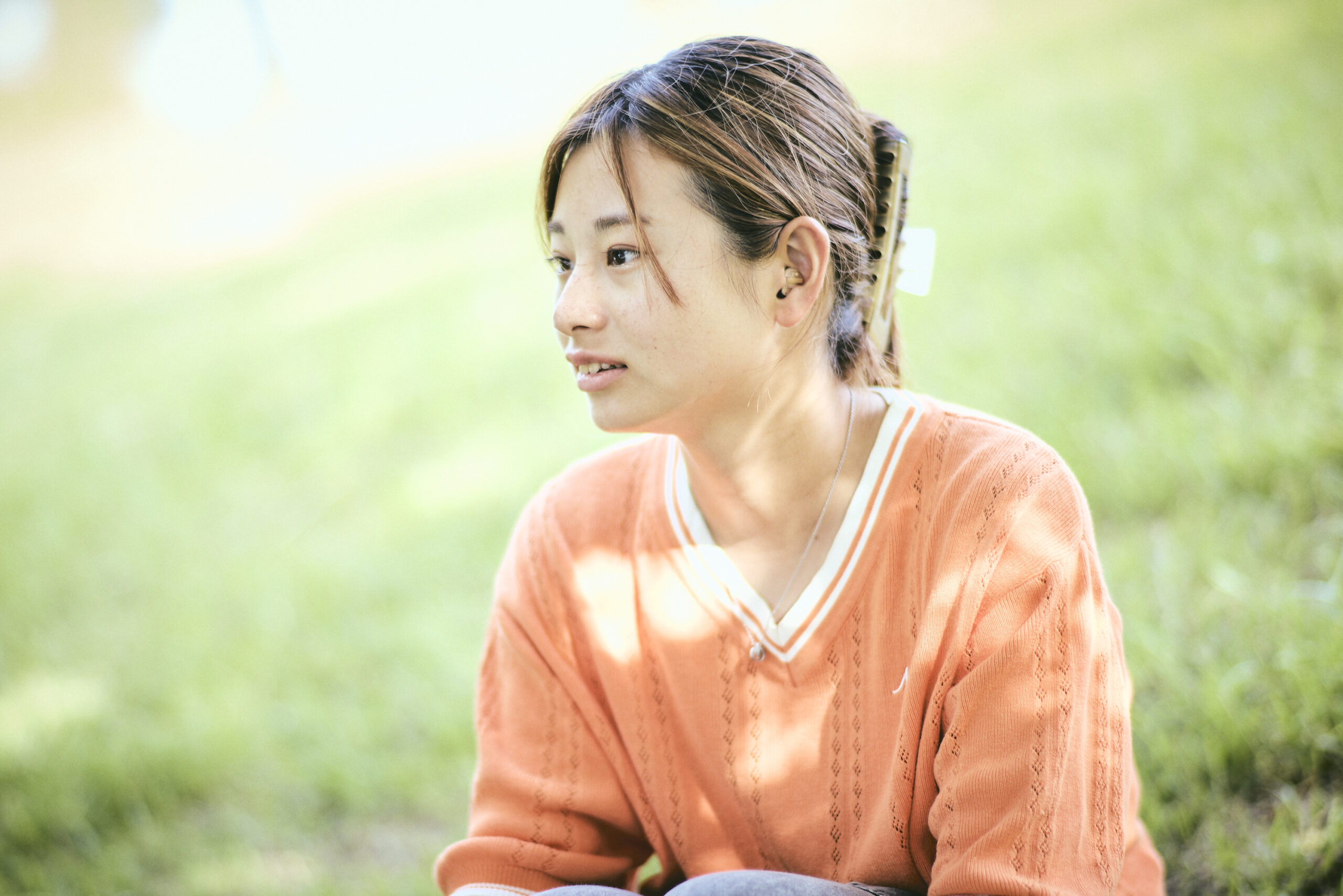
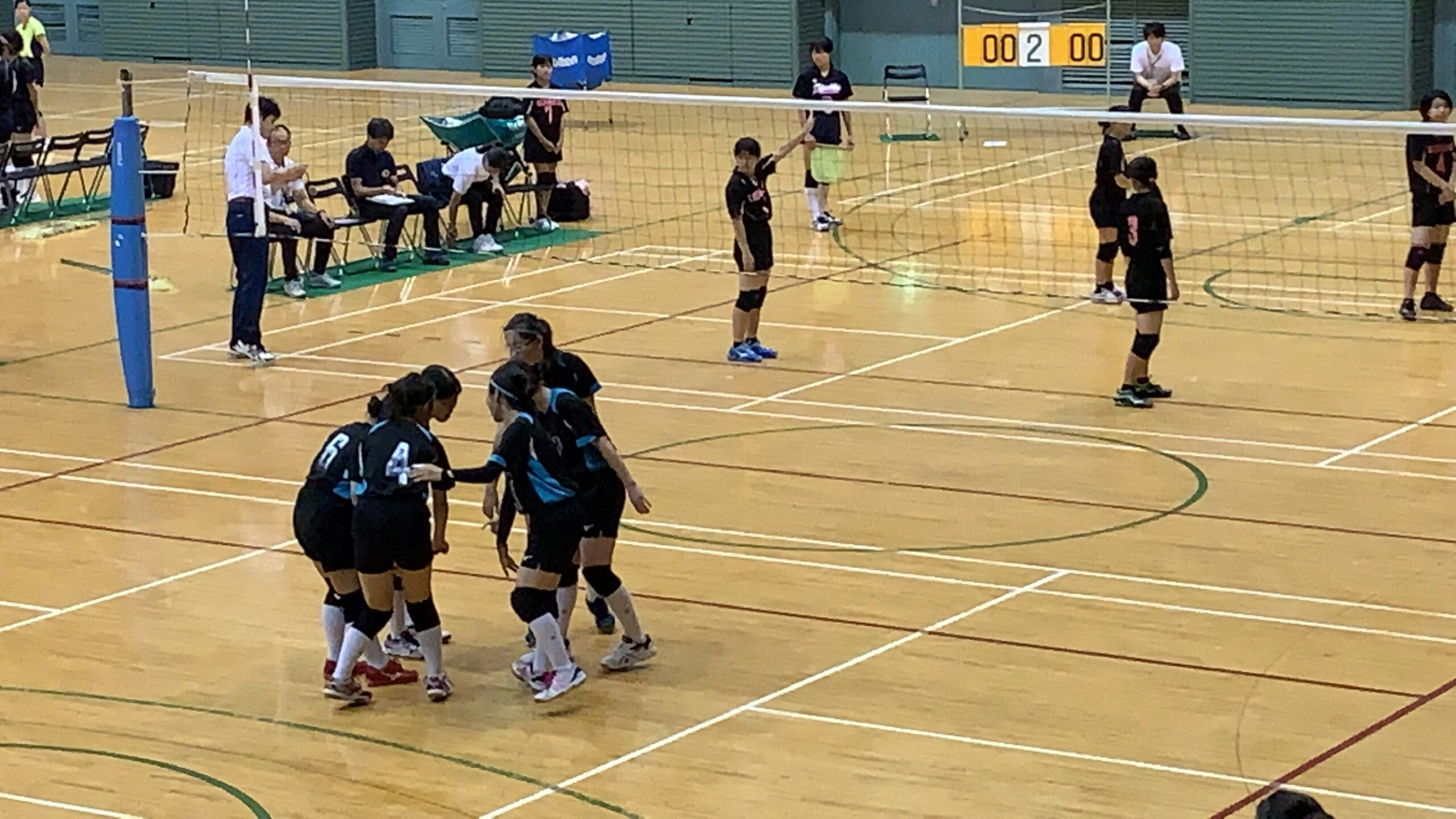
The more she did it, the more she got into it
――How did you decide to switch to beach volleyball?
After graduating from junior high school, I went on to the Tokyo Metropolitan Central School for the Deaf. I retired from club activities after the entrance exams were over, and my mother got angry when I was lazy every day (laughs). So, I was almost forced to go to a beach volleyball club in Kawasaki. That was the first time I learned that there was a sport called beach volleyball. Luckily, I was able to start it, so I decided to try it in high school by managing both indoor and beach volleyball. On school days, I take part in the indoor volleyball club and on my days off, I practice on the beach. When I was in high school, I was always exercising, without taking a break.
When I actually tried both, I felt that there were six people playing in indoor volleyball, so I could have room in my mind, but I had “too much time to spare” (laughs). But there are only two people on the beach, so one of them must pick it up. It’s very hard, but I think it suited my personality to be busy and moving around. That’s why after I went to university, I narrowed it down to focus only on beach volleyball.
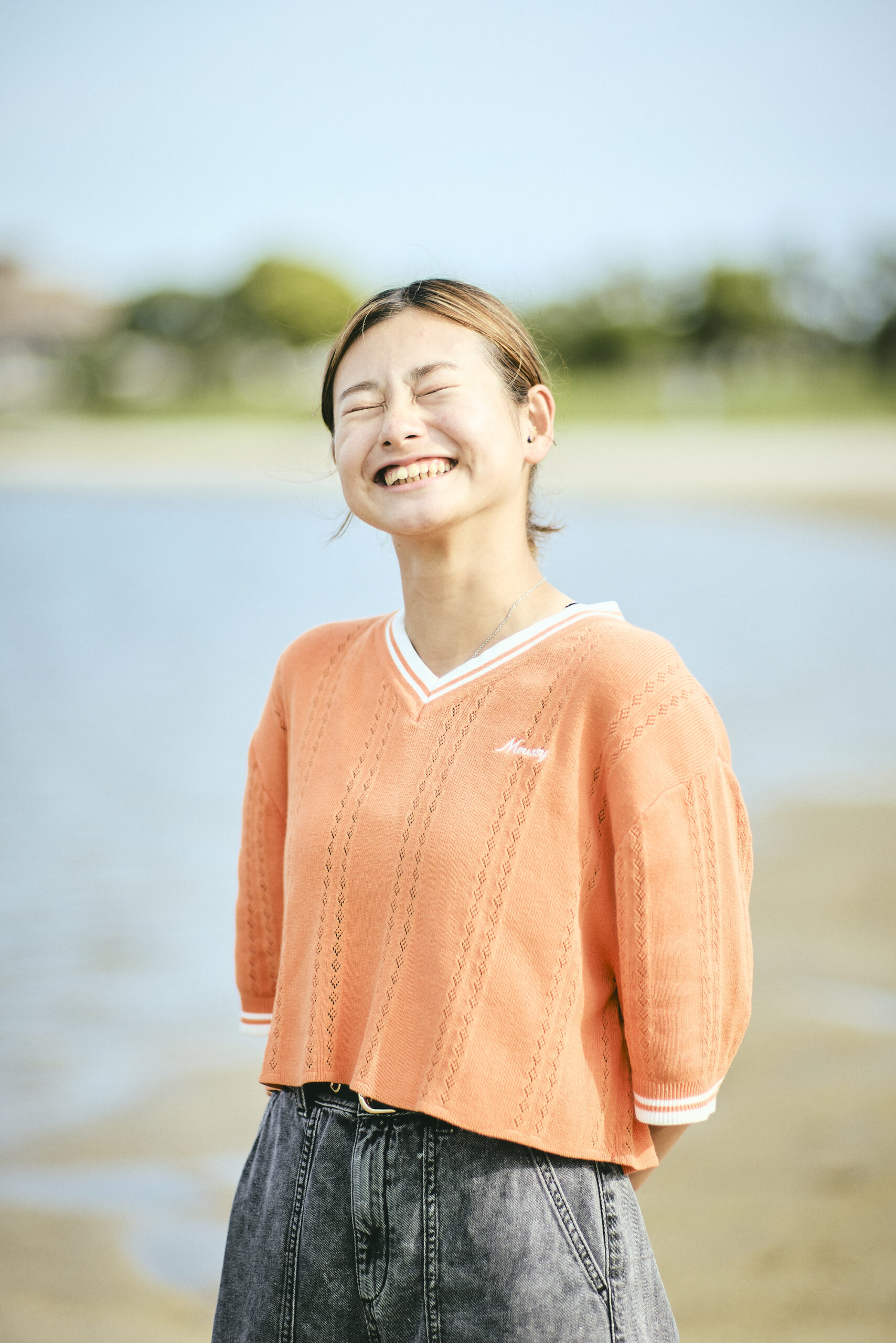
――I see, “too much time to spare” is an interesting expression (laughs). Beach volleyball is played on sand, so the playing surface is indeed sandy underfoot and I think the conditions vary greatly between indoors and outdoors. When you first played, did you find it confusing or difficult?
The thing that puzzled me the most was the “wind”. I’m still being pushed around by it (laughs). In beach volleyball, the upwind side (= tailwind) is called the “bad side” and the downwind (= headwind) side is called the “good side” from our point of view. Downwind is more advantageous, and even if you hit the spike as hard as you can, the wind will push it back, so it’s hard for the ball to go out. However, the direction of the wind changes all the time during the match, so I am always pushed around every time by the wind, like “it was on the good side before, but it has changed again!” I must change my tactics depending on the direction of the wind, so I need to always know the wind conditions. It’s not easy to deal with nature. That’s the big difference with indoor volleyball.
――What was it like to run on sand?
I had no problem with it at all. When I was in elementary school, I used to run around barefoot in the mountains with my dog, so I had the same feeling (laughs). However, it was difficult to jump high on the sand because it was being held by my legs. So, I tried to build up my leg strength by doing deadlifts and squats. I still do it without fail.
――You were a very energetic elementary school student (laughs). What is your favorite style of play?
I’m better at “cheating” plays like “Oh my god, you hit the ball there” rather than powerful plays. If I find an edge of the court or a point that my opponent seems to be difficult to take, I will attack immediately, or I’ll pretend to hit in the opposite direction. People often say, “You have a bad personality” (laughs).
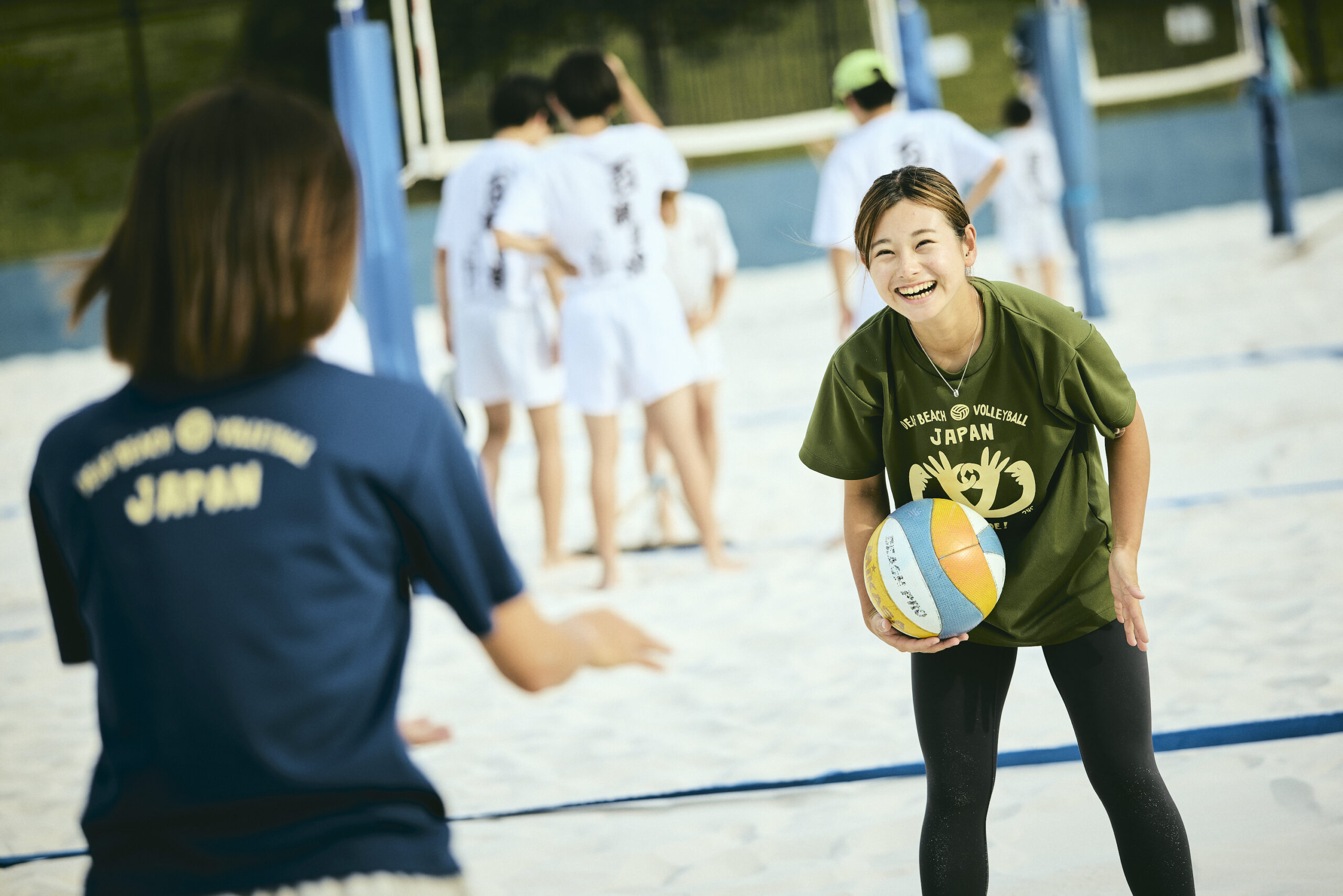

It is also essential to build a body that supports it
――When it comes to such tactics, do you have any athletes that you look up to as role models?
In terms of “cheating”, I use Non Matsumoto and Suzuna Fukuda as role models. Beach volleyball is basically a game of deception and bargaining, and the two of them are particularly good at it. It’s very educational, and above all, it’s interesting. Suzuna Fukuda’s bumping style is also very beautiful, and I admire her.
Height of 155 cm is her strong point
――I hear that beach volleyball is not only about individual skills, but also about compatibility with pairs. How did you end up teaming up with Karin Hori, who you are currently paired up with?
Karin Hori was a classmate in high school, and we were in the same indoor volleyball club. When I was watching Karin Hori while she was playing, she seemed “to have too much time to spare” and looked bored (laughs). She looked like she wanted to touch the ball more. So, when I invited her to beach volleyball which is a very “busy” sport, she immediately agreed. That’s how we started pairing up. While it is difficult for some people to make the switch from indoor to beach volleyball, I think that Karin Hori was amazing to be able to make the decision to take that step.
――So you were the one to ask her to pair up. Did you always get along with each other?
In high school, we were in different classes for two years, so at first, we were just friends in the same club activity. I didn’t have a chance to talk with her that much, so people around me might have been like, “Why are these two people paired up?” But since we paired up, we’ve become really good friends, and now we go out to hang out after practice and communicate frequently on LINE and social media platforms.
――What are the roles for both of you on the court?
I’m the receiver and Karin is the blocker. Karin is over 170 cm in height, and I am only 155 cm, so we make our roles clear on the court. We are truly an uneven pair (laughs).
Karin started later than me, so she is more likely to be targeted in terms of experience. That’s why I try to bump set as much so that I can reduce the number of times Karin hits. Beach volleyball has the same rule as the indoor volleyball, and basically, we have three hits to return the ball to the opponent’s court, so if I bump set first, I will be the next one to hit it.
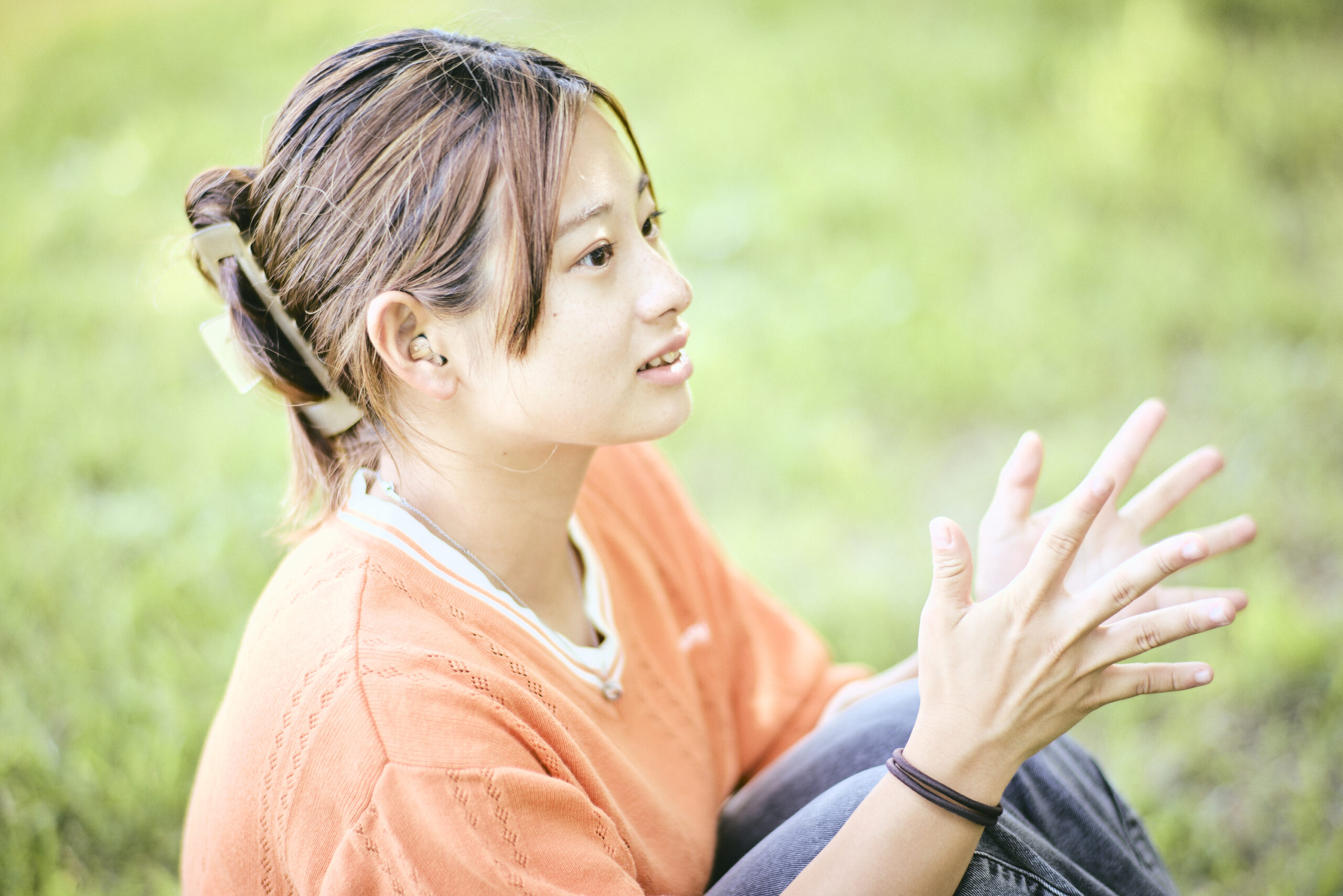
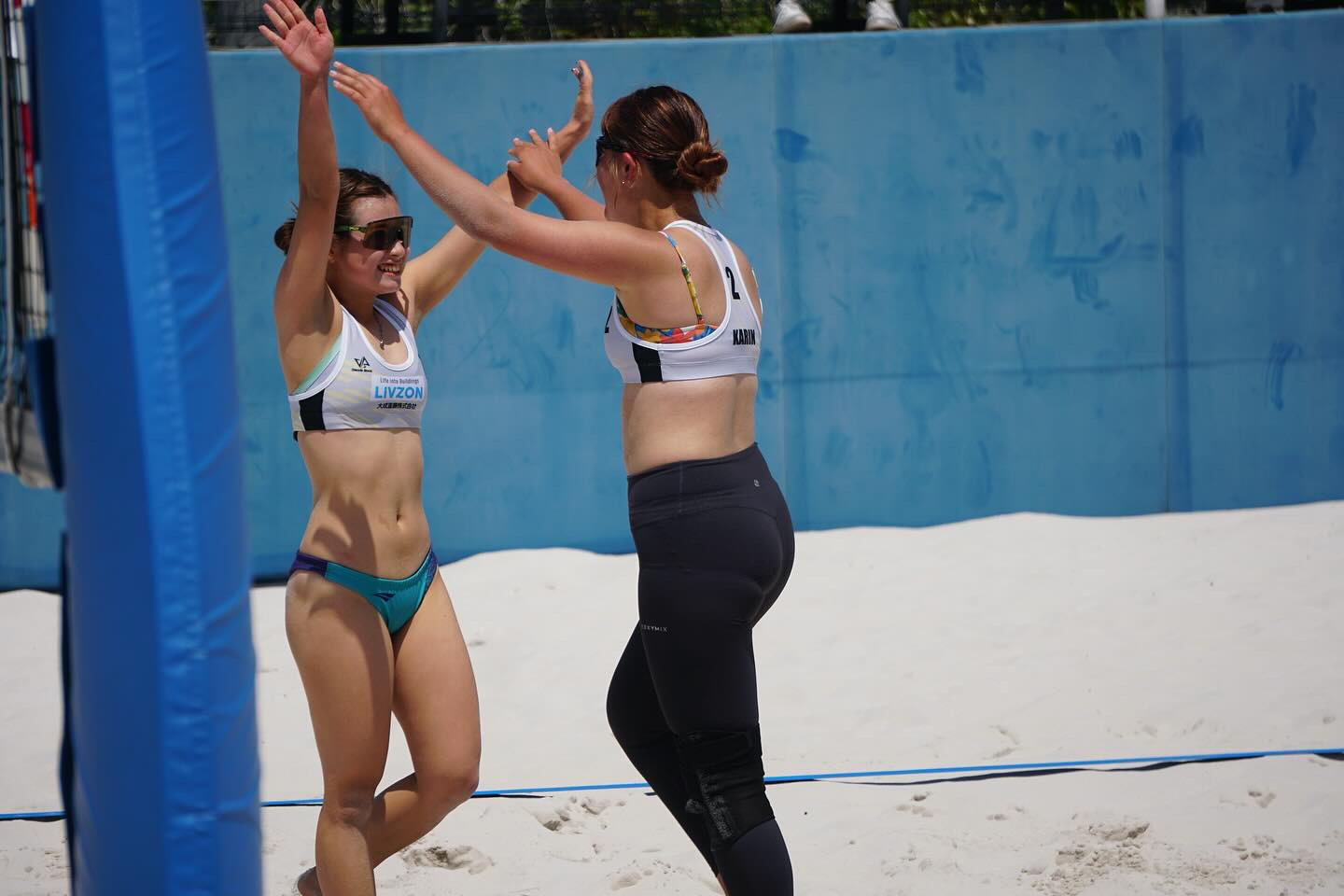
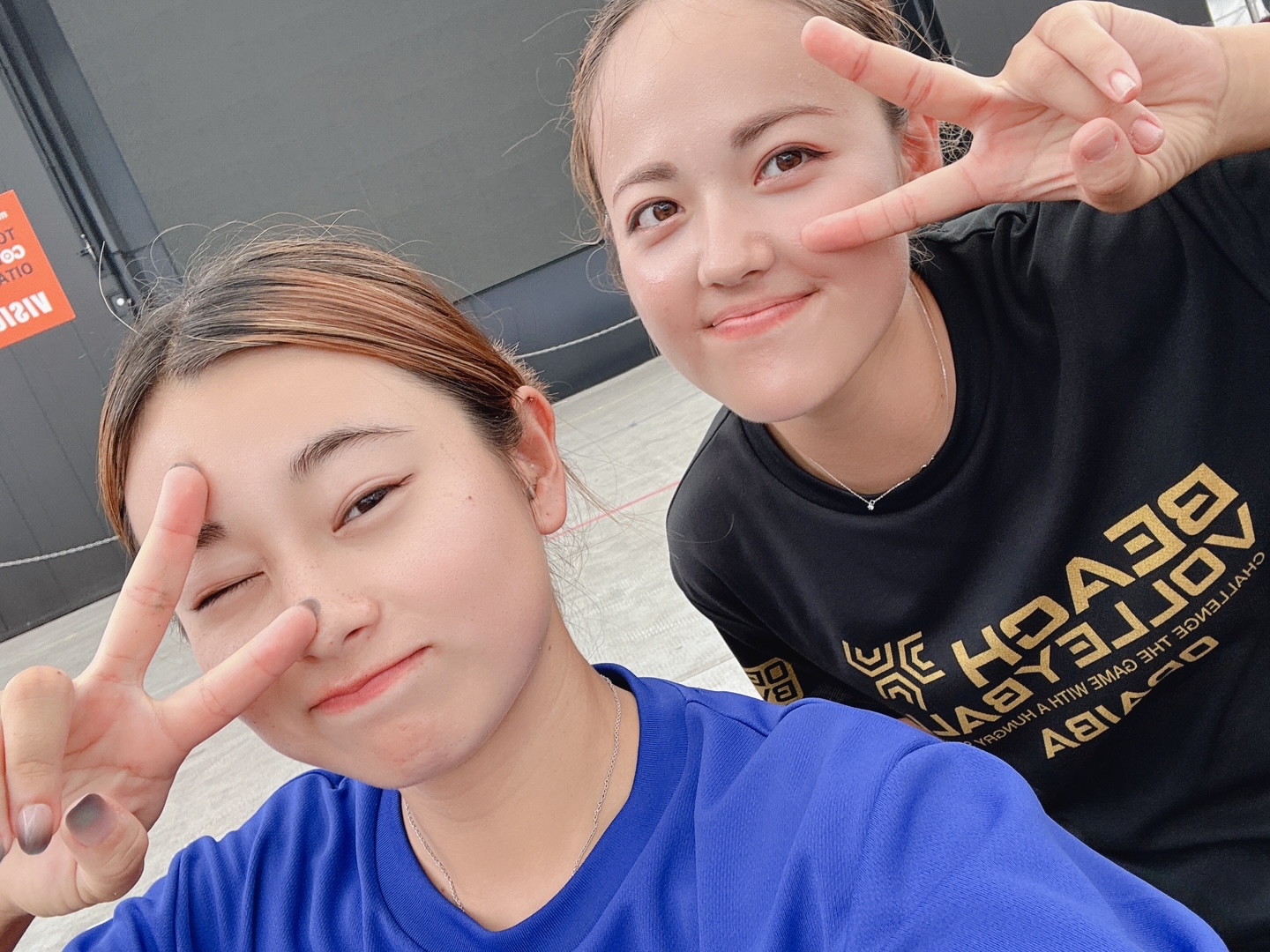
An uneven pair who get along well in private
――Do you have any strengths that make use of your short stature?
It’s the bumping power and flexibility. I think it’s one of my strong points to be able to pick up a low attacked ball. When I look at the playing style of various athletes, I have the impression that the athletes with a short stature are better at bumping. Also, athletes with a smaller stature can move more flexibly on the court, so they can pick up any ball tenaciously. I think the charm of beach volleyball is that it is easy for athletes with short stature to play an active role. Well, there may not be many athletes who are as small as me (laughs).
That one victory gave me confidence, and that one defeat gave me determination
――What is your most memorable tournament so far?
It was the international friendly match of Deaf Beach Volleyball held in Oita Prefecture in December last year. We beat Poland 2-0 for the first time in the qualifying league and were able to finish in first place. A few months earlier, at the World Championships in the Czech Republic, we finished 8th and Poland 5th, so getting revenge led to confidence. We lost in the final tournament and finished as runners-up, but it was a big step forward to win in straight sets in the qualifiers.
Another thing that left a strong impression on me in terms of frustration was the Deaflympics Japan National Team Selection Tournament in April this year. Although I was selected for the national team, I had a strong feeling that I would definitely win the championship and be selected to represent Japan, so I was very disappointed that I ended up as the runner-up, so I dragged it out for about a week.
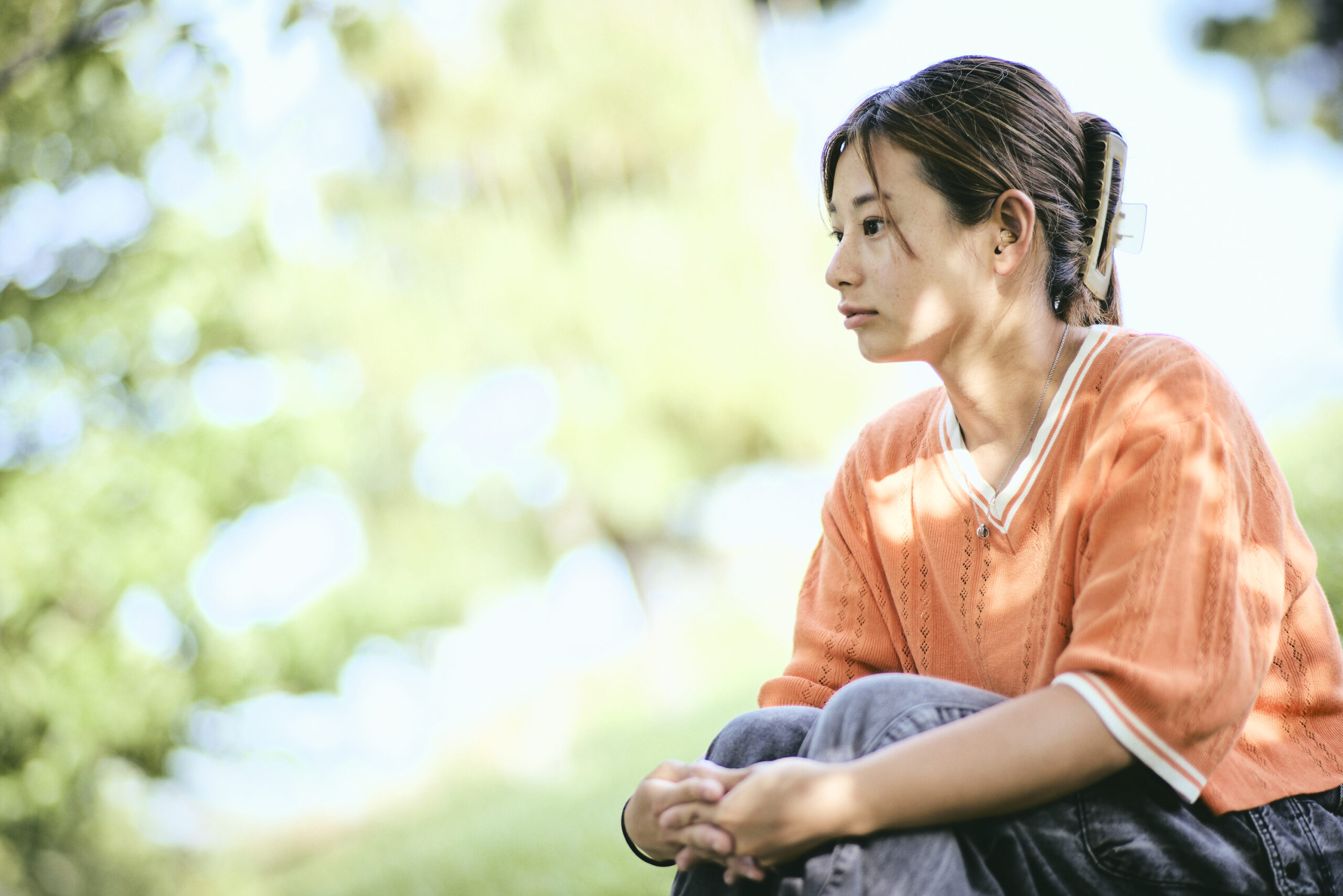
The national team selection meeting ended in a disappointing second place
――What was the cause of your defeat at the Japan National Team Selection Tournament?
The opponent in the final match was the pair of Yukie Sakaide and Miho Yagisawa, but it was the first time that these two had appeared in a match as a pair, and there was not much data to prepare for it. In addition, Yukie Sakaide’s leg cramped during the match, so the other pair switched to a two-stage attack. Spikes were driven into unpredictable places, which led to more bumping misses. And yet, I kept bumping and I’ve taken full responsibility for everything. If we could share the burden and pick up the ball together, the result might have been different. I think the reason for the defeat was that we couldn’t change our tactics flexibly.
――Since you can’t wear hearing aids on the court, how do you communicate with Karin Hori during matches?
I also use sign language during the match, but sometimes it gets tiresome, and I shout out loud (laughs). I can lip read, but Karin Hori is not very good at it. But short words such as “Please, take it!” or “It’s too high!” can be conveyed, so there are times when I use sign language and sometimes verbal. After the match, we always have an after-action review together.
――You dragged it out for a week after the Japan National Team Selection Tournament, but how did you rebuild your mind at that time?
In my case, I’m the type of person who just burst into tears and gets it off my chest. “Okay, let’s do it!” After all, I’m super competitive and hate losing. I hate to be frustrated, so I have no choice but to do my best. Coach Yukiko Ishizaka, a former Olympian, always tells me that it is important to accumulate match experience in order to win, so I try to play a lot of matches with hearing athletes in order to gain confidence.
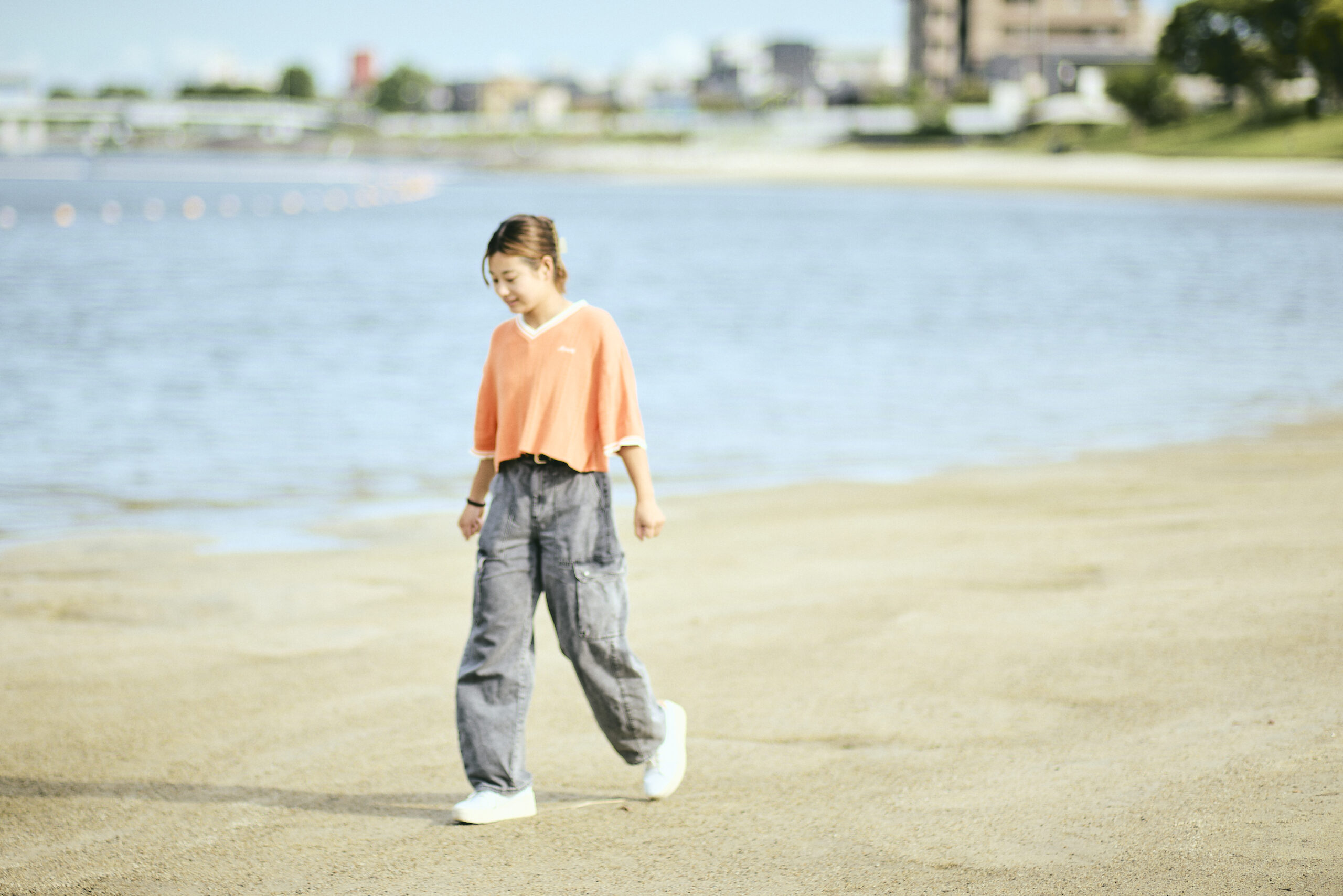
――You seem to be very cheerful and positive, but have you ever wanted to quit competing?
I’ve never wanted to quit because I didn’t like it. But when I was a freshman in high school, I thought it over when I suffered a meniscus tear in my left knee and a partial tear of ligaments. It was said that “if I do it again, I will not be able to live as an athlete,” and it was difficult to walk, let alone run. Due to the drastic decrease in exercise, my muscle strength has decreased, and I have lost about 5 kilograms. I wasn’t sure if I would be able to go back to my old life, so I seriously thought about quitting volleyball and looking for something else.
However, I had a match coming up three months later, and I had the goal of “I’m going to be in this tournament,” so I was able to steadily work on my rehabilitation. I managed to participate while providing supporters and athletic taping for reinforcement.
That tournament became one of the motivations for me, and I was able to look forward again. At one point, I didn’t know what was going to happen, but I’m really glad that I chose to continue competing.
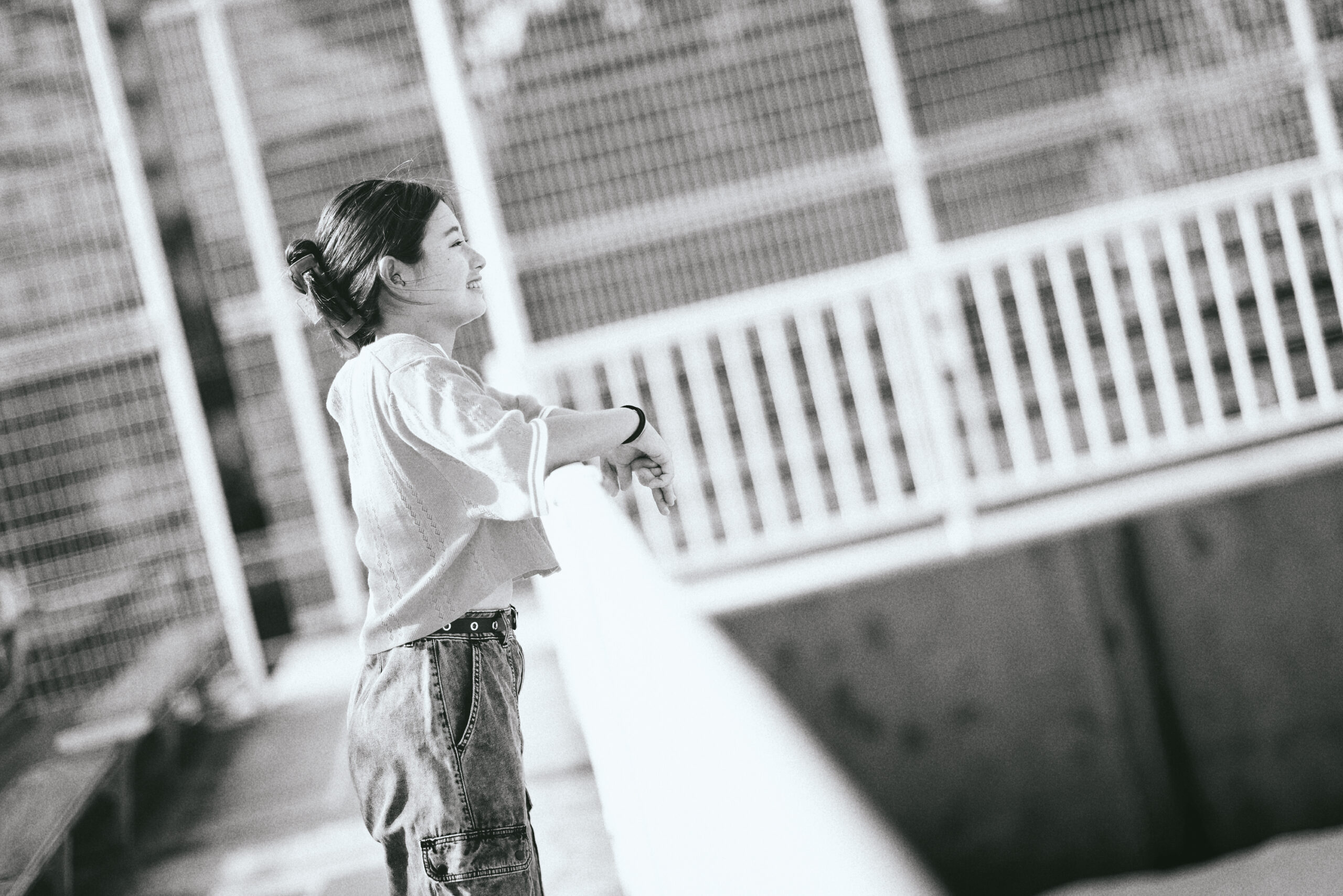
From longing to promise to reality
――Could you also tell us about the Deaflympics? When did you first learn about the Deaflympics?
It was at the Samsun Deaflympics 2017. Maki Yamada, a deaf track and field athlete, is my senior in elementary, junior high, and high school, and when Maki Yamada competed in the Deaflympics, all of our juniors wrote a message to support him. That was the first time I learned about the Deaflympics.
――I see. How did you feel when you were selected to represent Japan for the first time?
I have been aiming to participate in the Deaflympics for a long time, so I was really happy to be able to achieve it. It’s like, “I’m finally on the starting line.” I think this is just the beginning.
――What are you looking forward to at the tournament?
I’m really looking forward to meeting the Polish and Ukrainian athletes I made friends with at last year’s World Championships in Japan! Of course, I am looking forward to playing in the match, but I’m also looking forward to meeting them and having lots of laughs and chats.
Also, there are athletes of the same age as Taichi Aratani and Yusuke Murata on the Japan national team in deaf track and field, but they were high school classmates and were in the same class. In particular, Taichi Aratani and I have been playing together since I was in the third year of elementary school when I entered a school for the deaf. We had promised to participate in the Deaflympics, so it was exciting to be able to stand on this big stage wearing the uniform of the Japan national team with my childhood friend. Moreover, at the 100th anniversary tournament held in my own country!
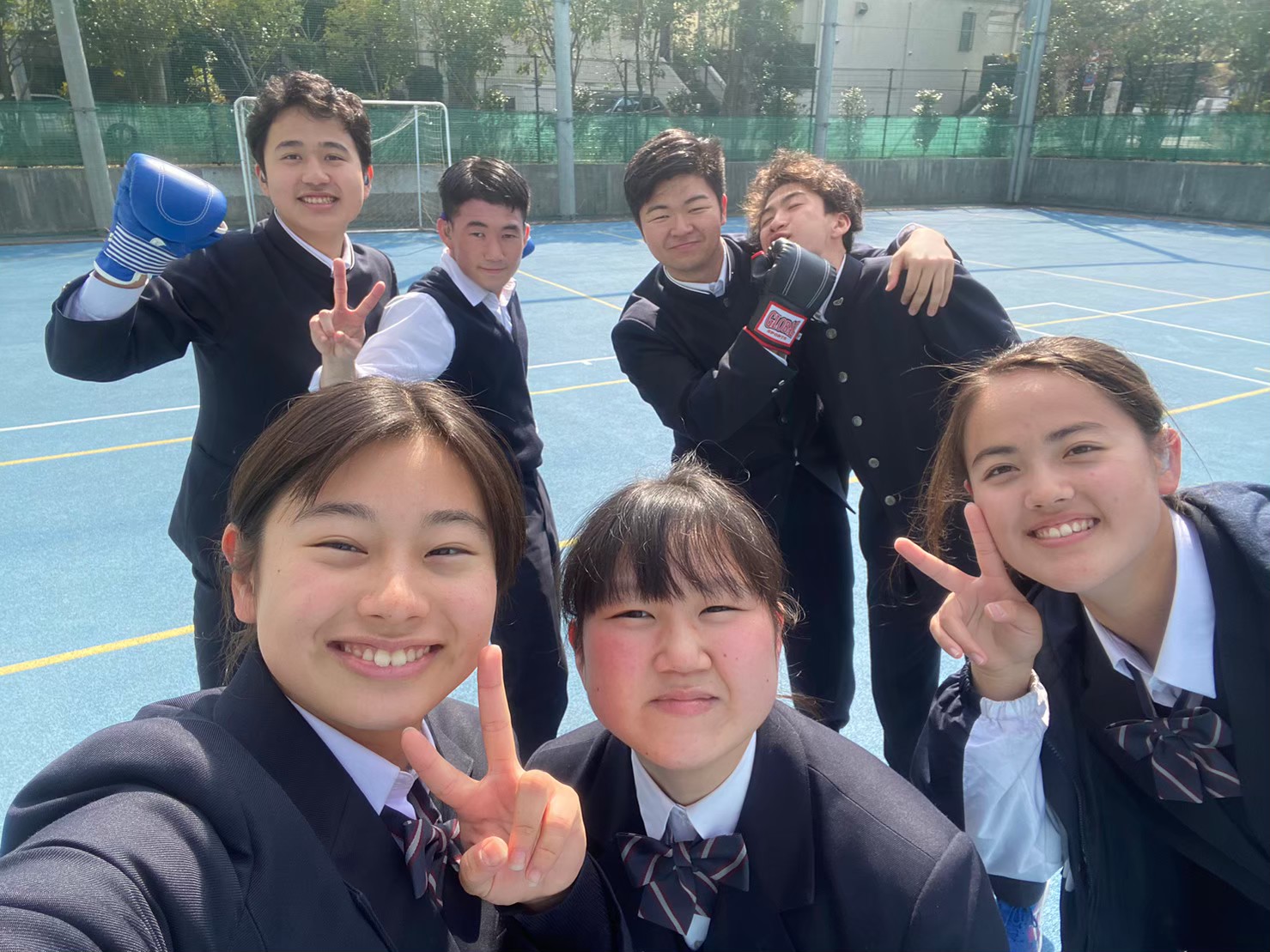
Standing on the stage of the Tokyo 2025 Deaflympics with her classmates will definitely be a special tournament
――It’s very emotional that there was such a side story. What are your goals for the Deaflympics?
Gold medal, of course! In Deaf Beach Volleyball, Japan has yet to win a medal for both men and women. That’s why we want to achieve this feat for the first time in history.
――Do you have any dreams or goals beyond the Deaflympics?
When I look at Maki Yamada, I really respect him because he has participated in the Deaflympics back-to-back and won medals every time. That’s why I want to play an active role on the world stage not only at the Tokyo Games, but also on the world stage after that. And I would be happy if as many people as possible could know the charm of beach volleyball and deaf sports.
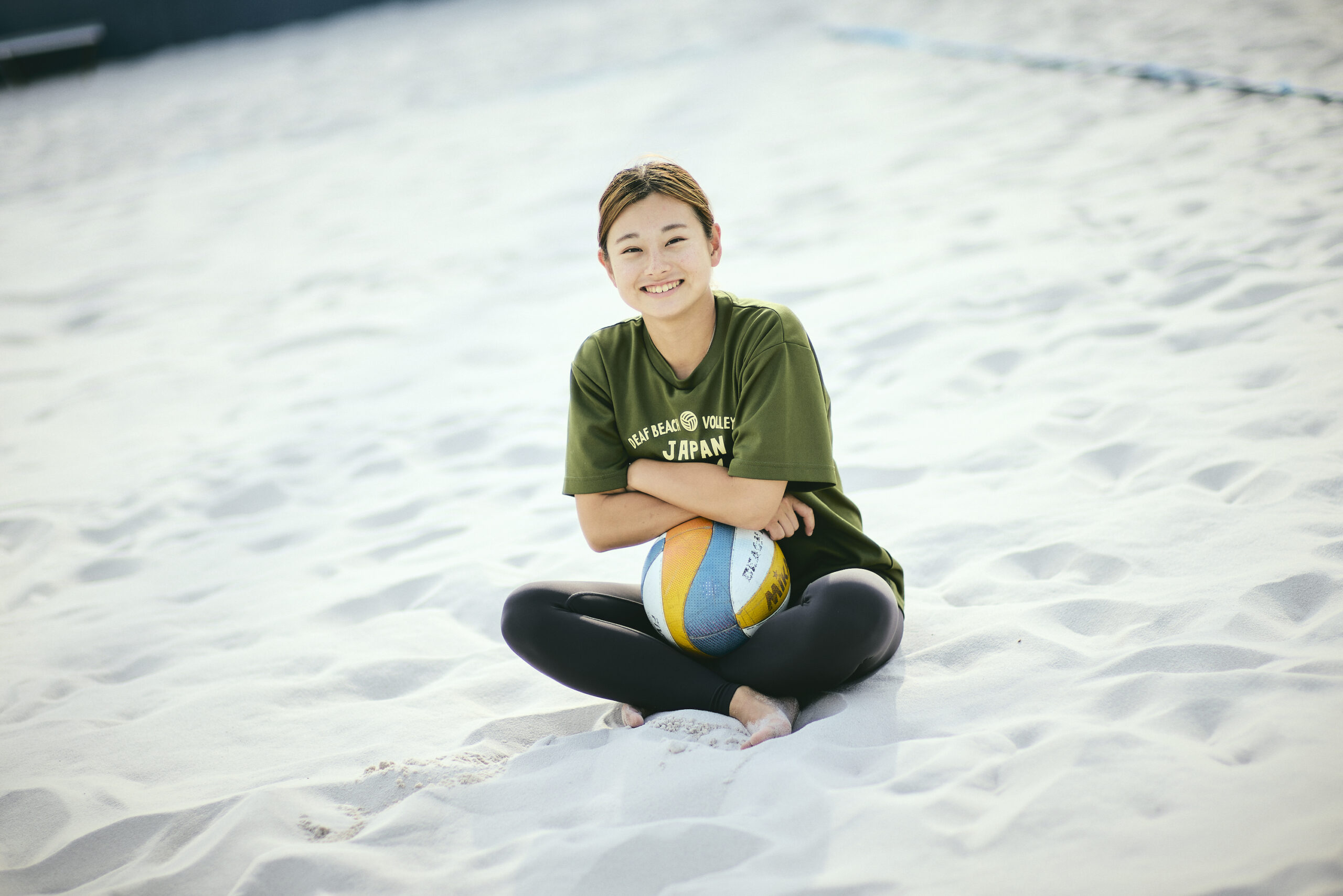
Ready to bring it on, full of winning spirit: the origin of a small fighter
――From here, I would like to ask you about your personal side, and not as an athlete. What were you like as a child?
Basically, I am the same (laughs). But when I was a kid, I was more edgy, and I was like, “I was ready to bring it on!” (laughs). Anyway, I had a strong-minded personality, and I was like “I will accept a challenge and engage in all the fights”. Regardless of whether my opponent was a man or a woman, I would beat them anyway and make a victory pose saying, “Okay, I won!” (laughs). That’s not the case now though. But at the time, I was really a terrible “quarrelsome” type of person.
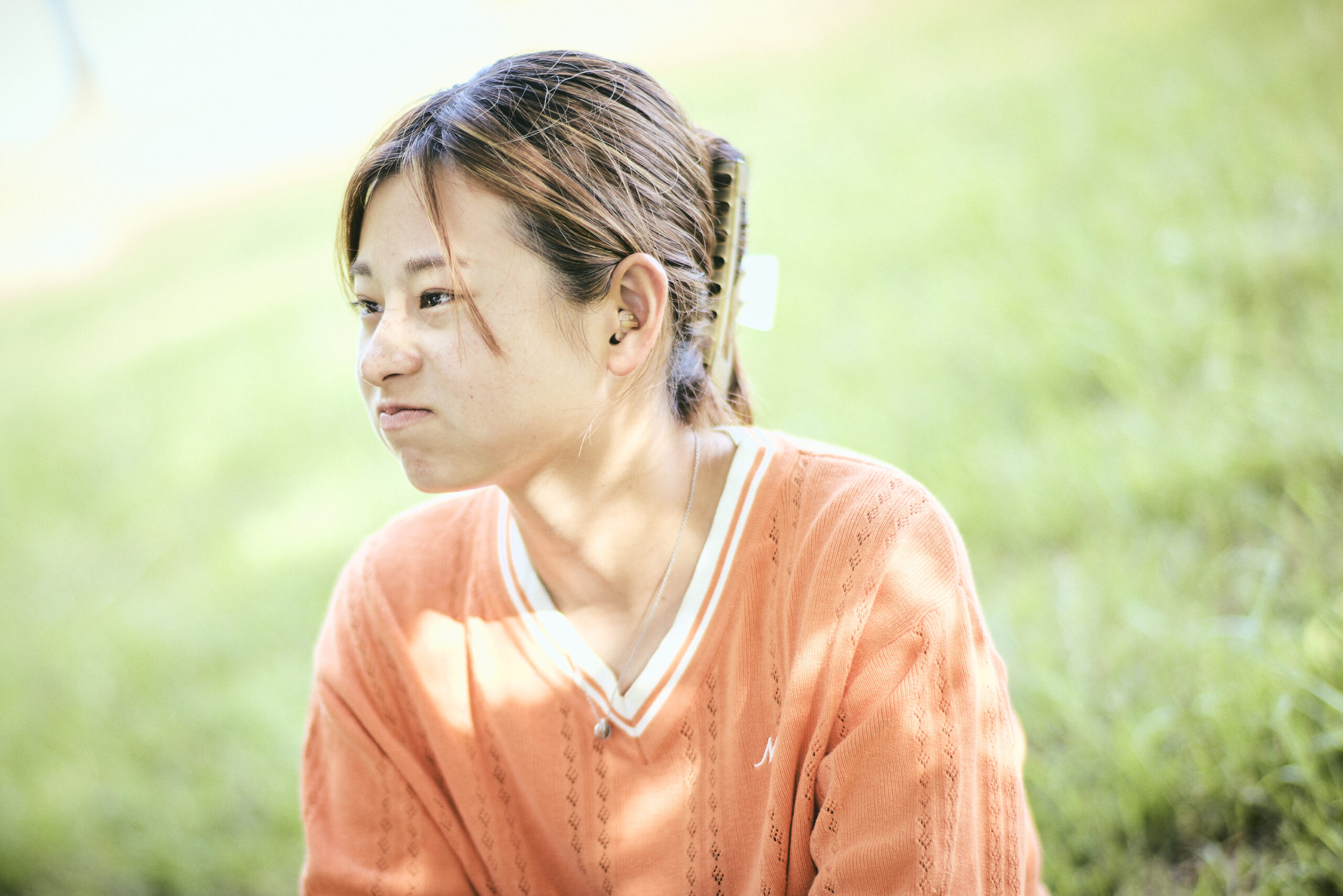
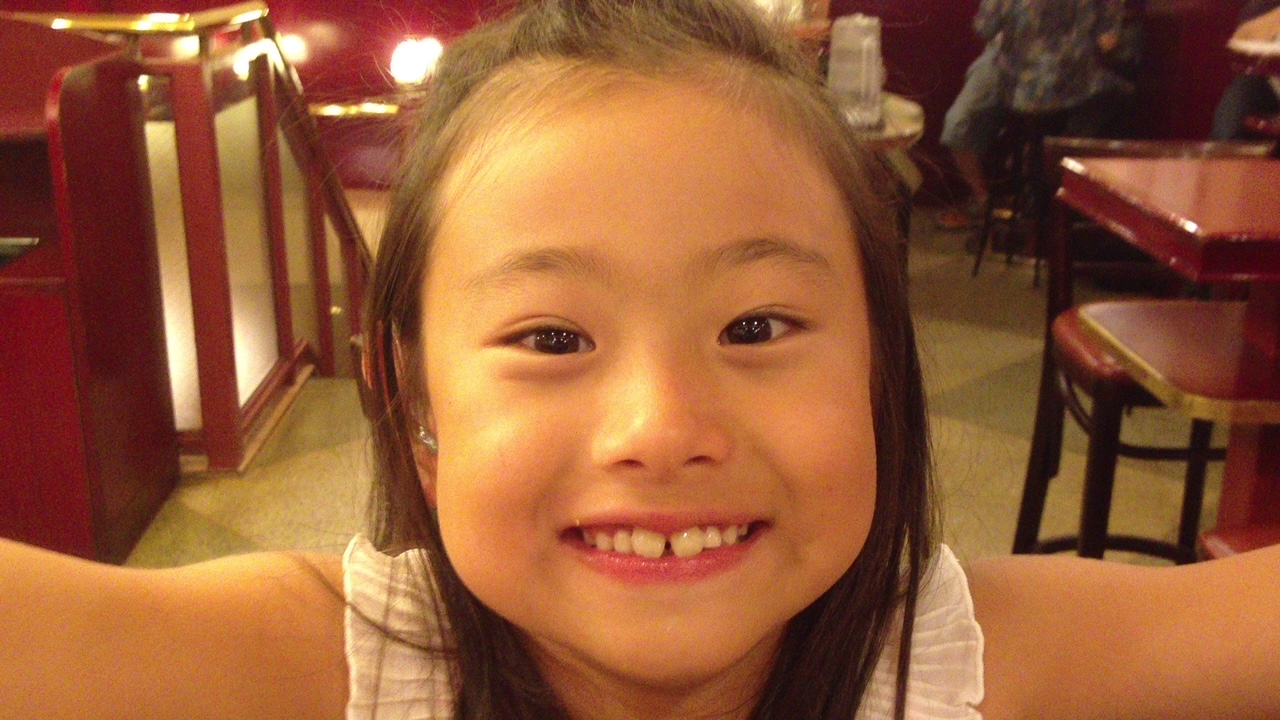
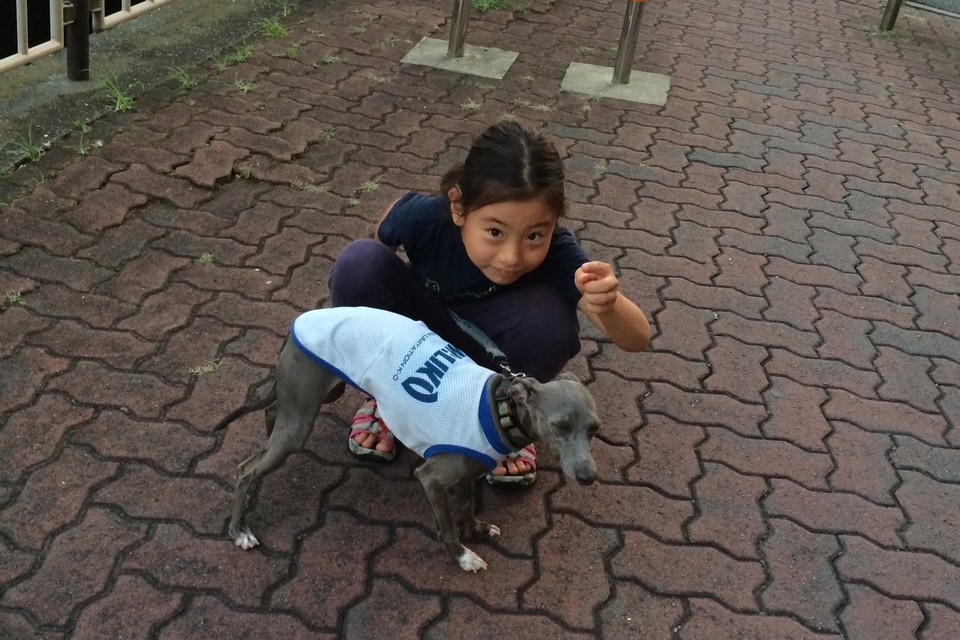
――That’s amazing… (plewds) When did you start to settle down?
I think it was around my third year of high school. Until then, I was always sharp edged.
――That is very recent (laughs). You entered a school for the deaf when you were in the third grade of elementary school, but please tell us how that came about.
I had congenital hearing loss. I was examined at the hospital, but they don’t know the cause even now. Until the second year of elementary school, I went to a nursery school and an elementary school for the hearing, but I had no idea what the teacher was saying as the teacher is often facing the blackboard and teaching. So, I talked to my mother and decided to transfer to a school for the deaf. At a school for the deaf, the teacher will speak in sign language while facing forward, and even if the battery of the hearing aid dies, I can understand the contents by looking at the sign language. I was able to take classes without any worries, and I began to seriously learn sign language.
――You are currently a third-year student at Daito Bunka University, but what do you enjoy most about your student life?
It’s when I have fun talking about silly things with my friends. My friends have nothing to do with beach volleyball, so it’s very refreshing. They don’t pay any attention to my ears and ask me directly, “What should I do in such a case?” Some of my friends are interested in sign language, and they say, “I want to learn sign language, so teach me,” and I think I’m blessed with really wonderful friends.
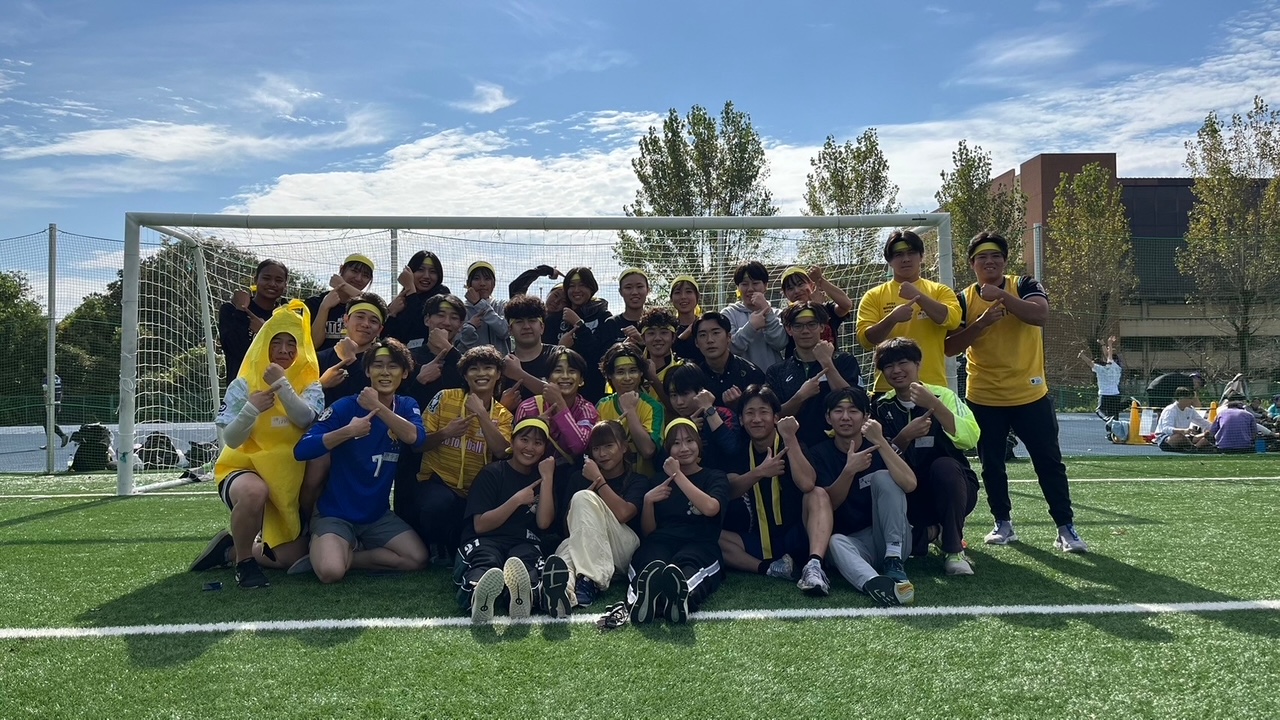
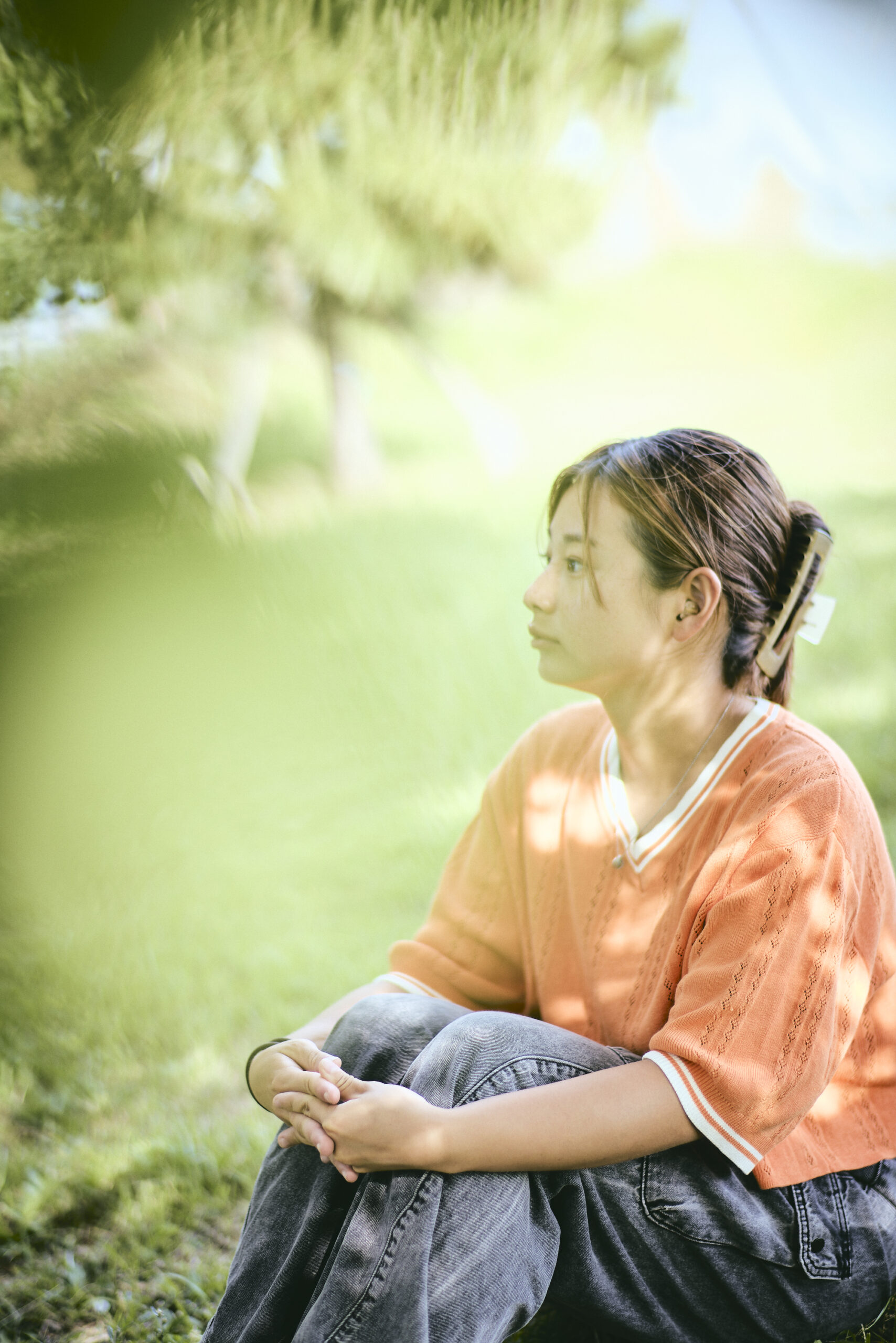
I’m in love with muscles and K-pop
――Please tell us about your hobbies and what you are currently into.
I’ve loved K-pop since I was in elementary school! As a result, I learnt Korean on my own when I was in junior high school. Thanks to this, I can speak and read without any problems, and I can understand the lyrics of songs and what they are saying in variety shows. Even though I’m not good at Japanese language and mathematics, I think my passion for what I like is amazing (laughs).
――That’s amazing! By the way, who is your favorite?
It covers everything from the 2nd generation to the 5th generation, but my fave right now is Mingyu and DK (Dogyeom) from Sebuchi (SEVENTEEN). I check out all the Korean variety shows they are on! I like their baby faces, but more than that, I love their muscles. When I saw an arm with blood vessels protruding, I was like, “Wow!” (laughs). In fact, that is the reason behind why I chose the Department of Sports Science at Daito Bunka University. Everyone is playing sports, so they have broad and tight shoulders, and just looking at them makes me excited. My friends call me a pervert (laughs).
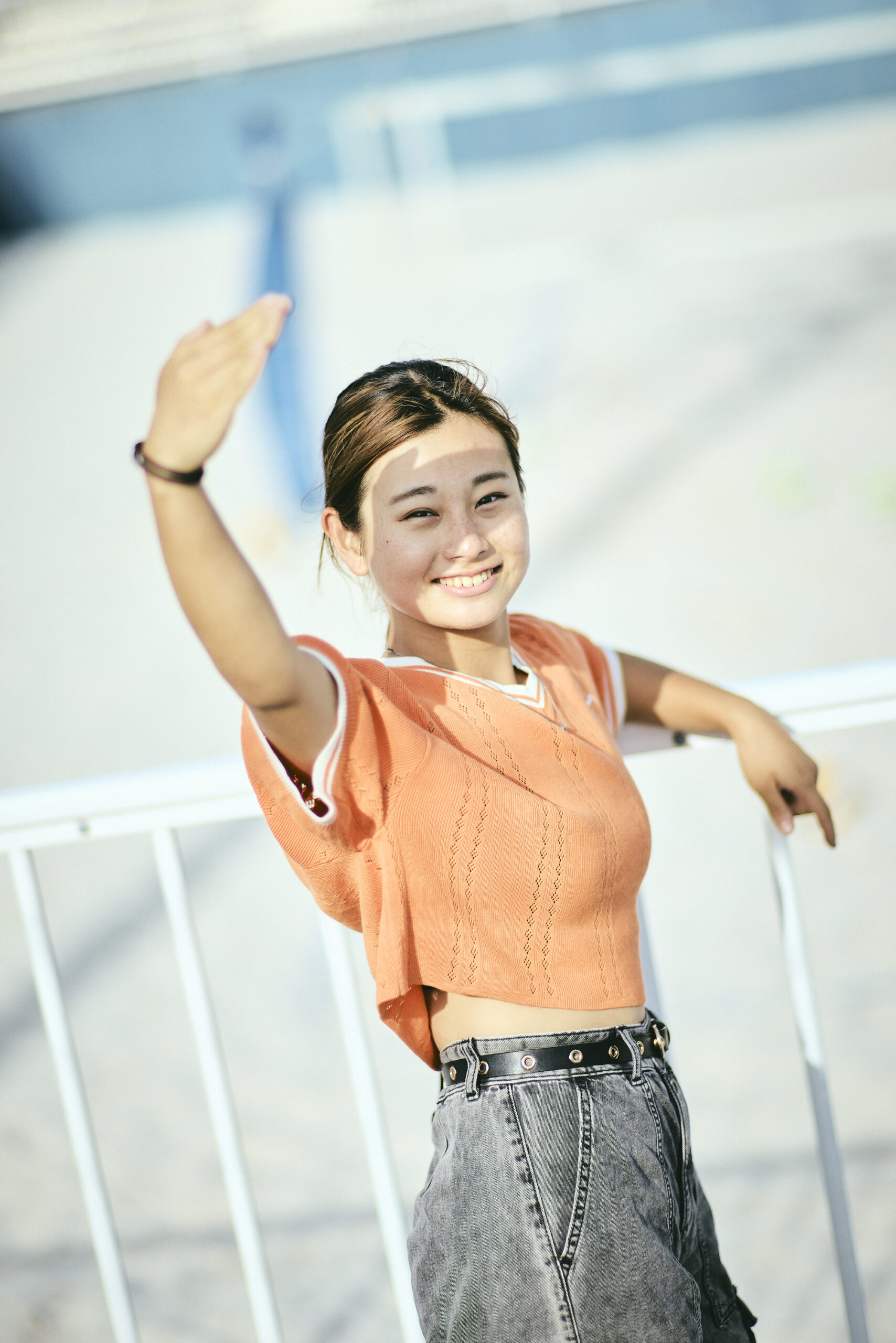
――(laughs) So, do you go to live performances on your days off?
Yes, I’ve been to Kep1er’s concert about 3 times already. I am a member of the fan club of Sebuchi because I want to go to their live concert, but I haven’t been able to go yet. Even though I love K-pop so much, I’ve never actually been to Korea yet… After the Deaflympics and things settle down, I definitely want to go on a trip to Korea.
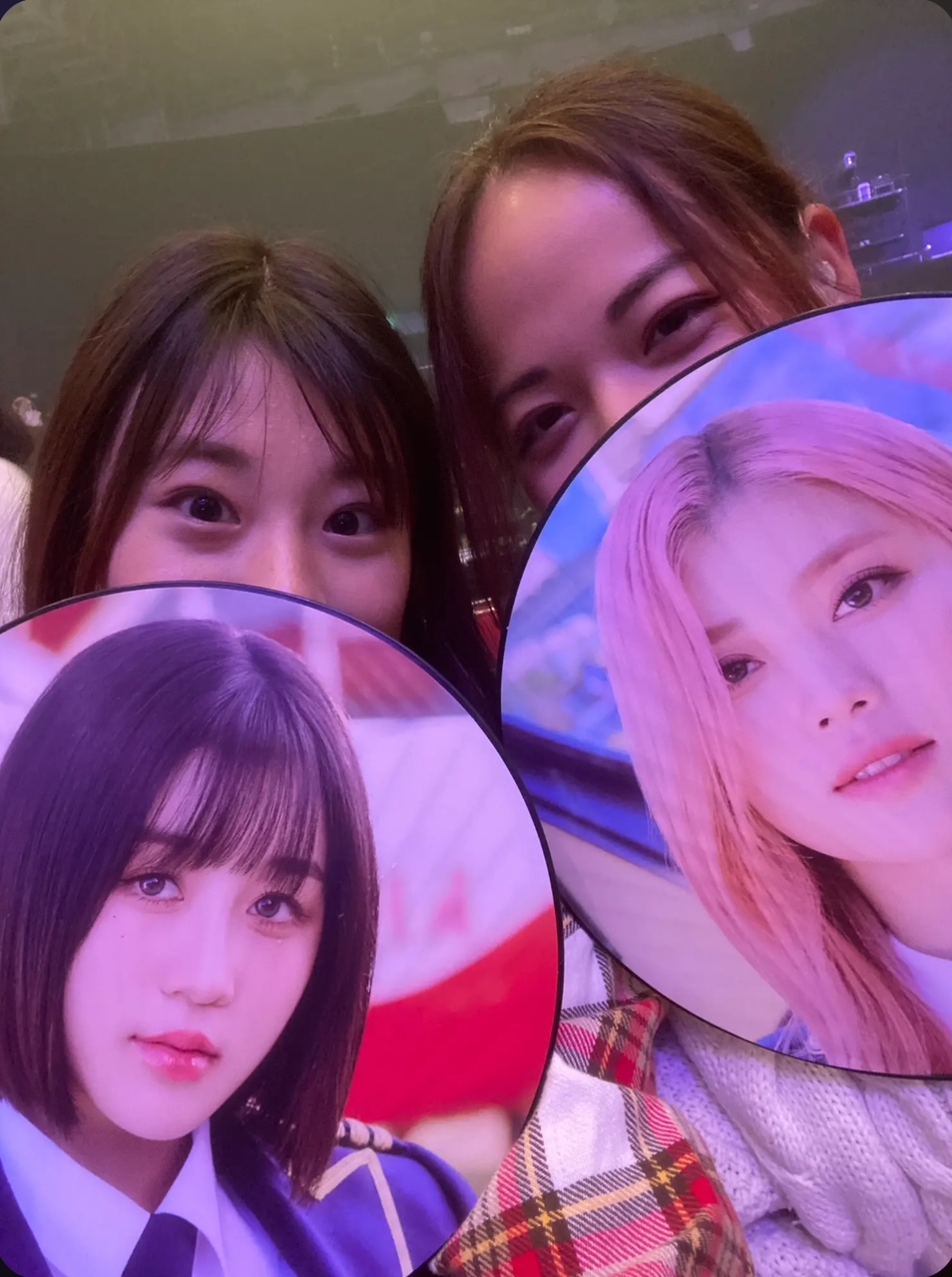
――That’s a good motivation. Have you been influenced by anyone so far?
It will also be K-pop idol, Joy from Red Velvet. She has a very stoic attitude towards work, and her smile is beautiful and cute. When I saw her, I thought, “A lovely smile has the power to attract people’s attention” That’s why I’ve come to think that I should always be cheerful and smile as much as possible.
――Thank you very much for your passionate talk! Finally, do you have a message for our readers who are looking forward to the Deaflympics?
I will give it my all and do my best to win a medal! The key to my playing style is tenacity and “cheating” (laughs), so I would like people to pay attention to that at the venue.
I would be happy if I could show people who are thinking of giving up sports because of their small stature that they can play an active role even if they are small and encourage them to engage in sports in a positive way.
I will do my best in practice and training camp from now on, so please support me! And there are a small number of athletes who do beach volleyball, so if you think you might want to try it just a little, let’s do it together. Moderately tanned skin looks healthy and toned, and it’s the best! (laughs)
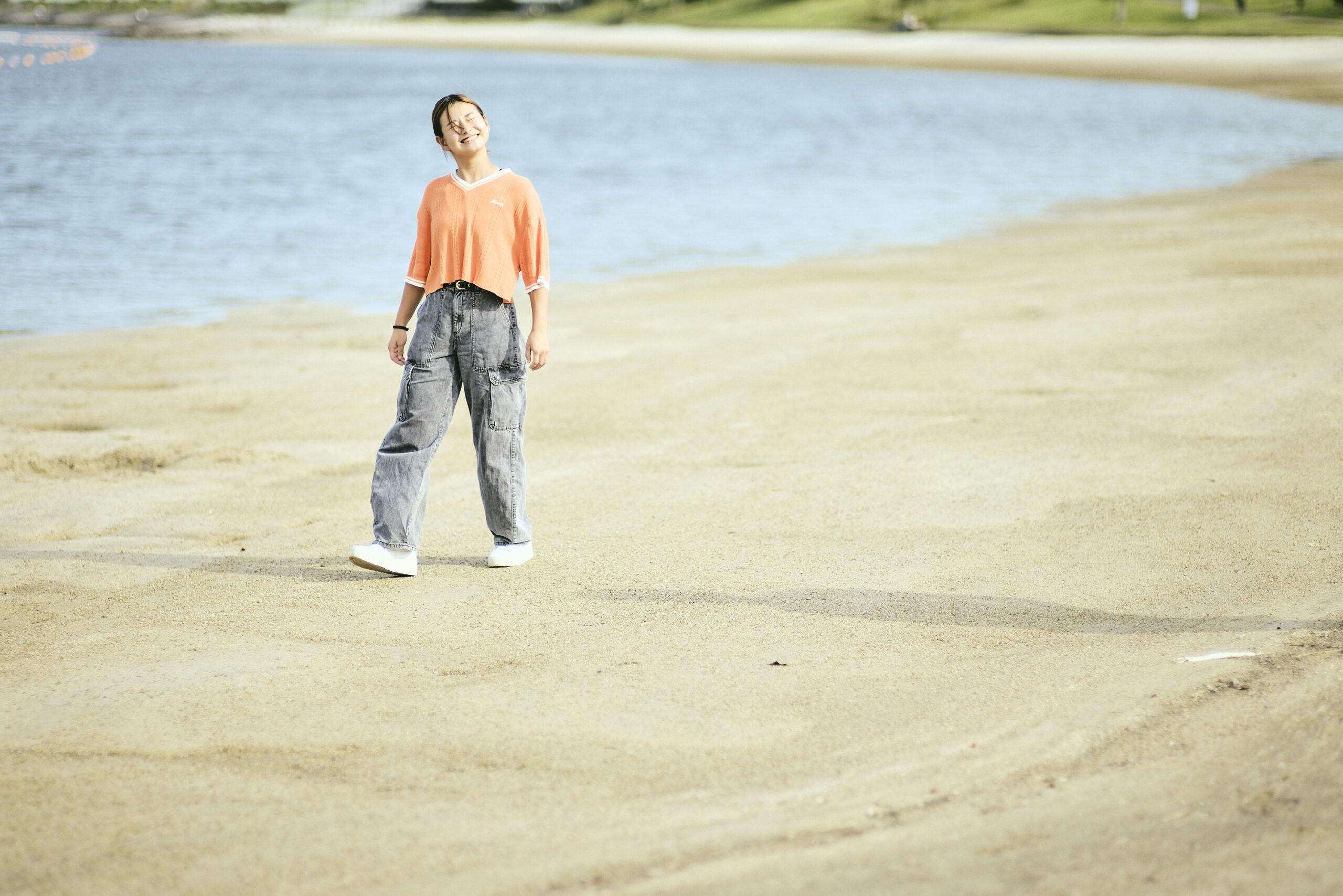

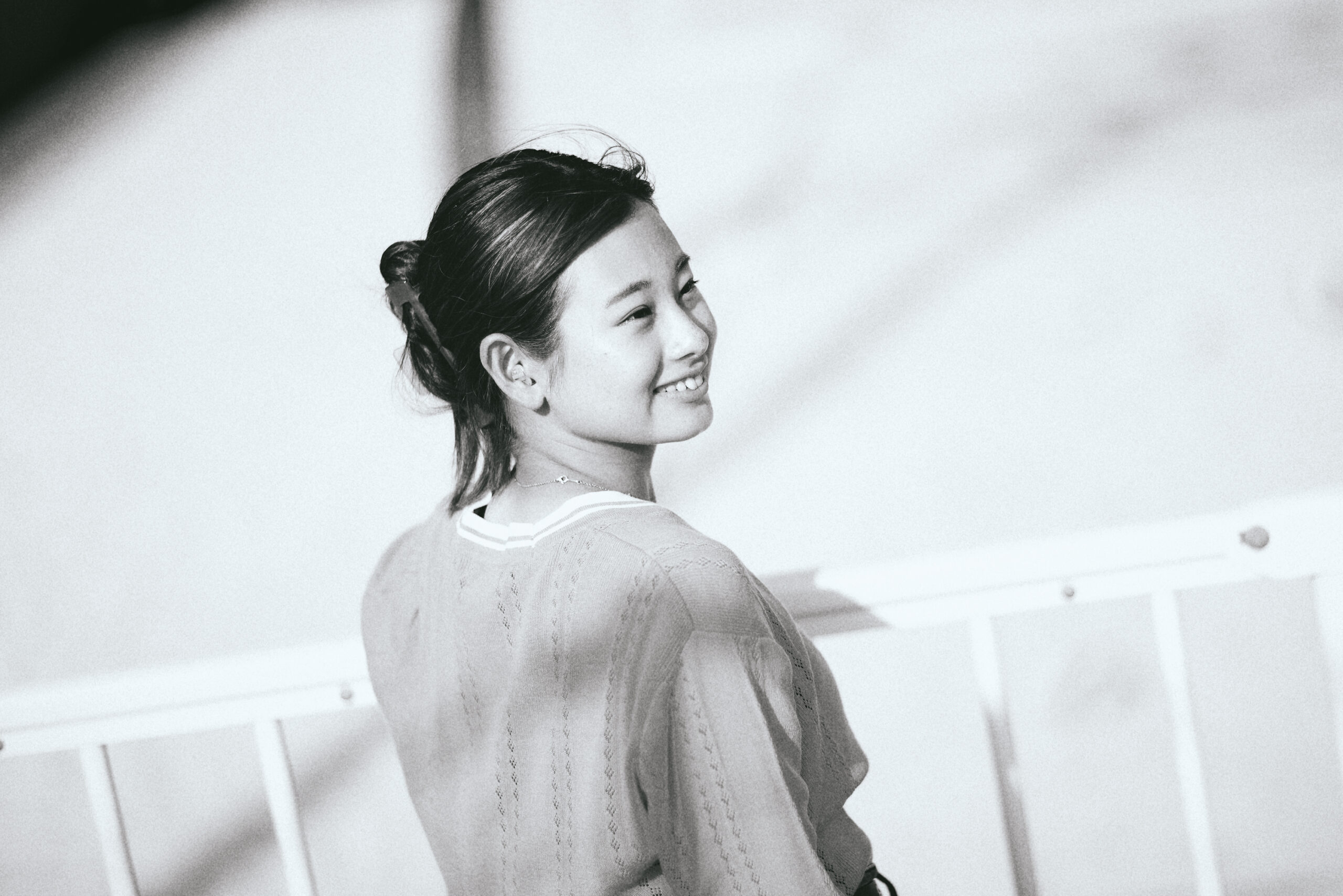
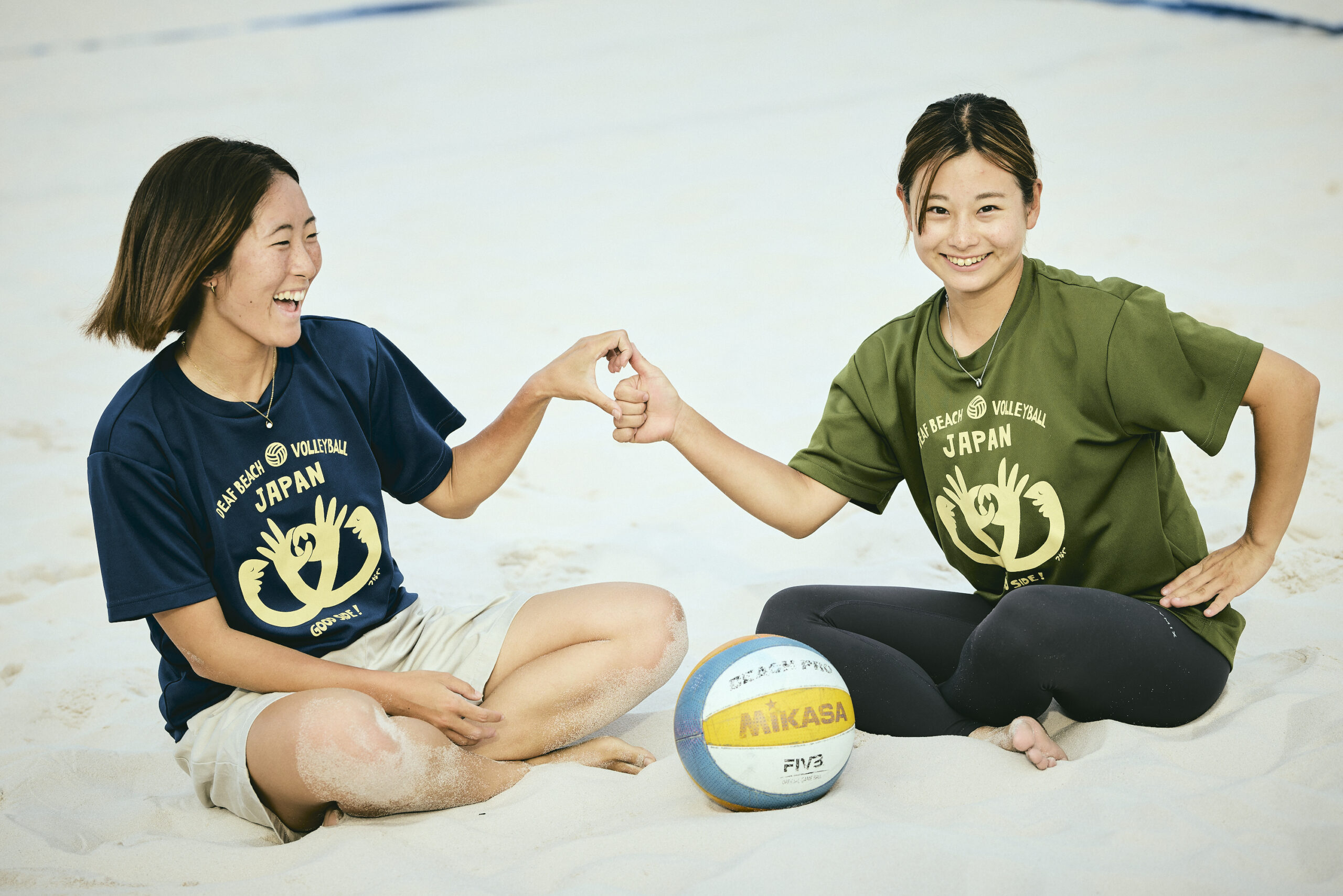
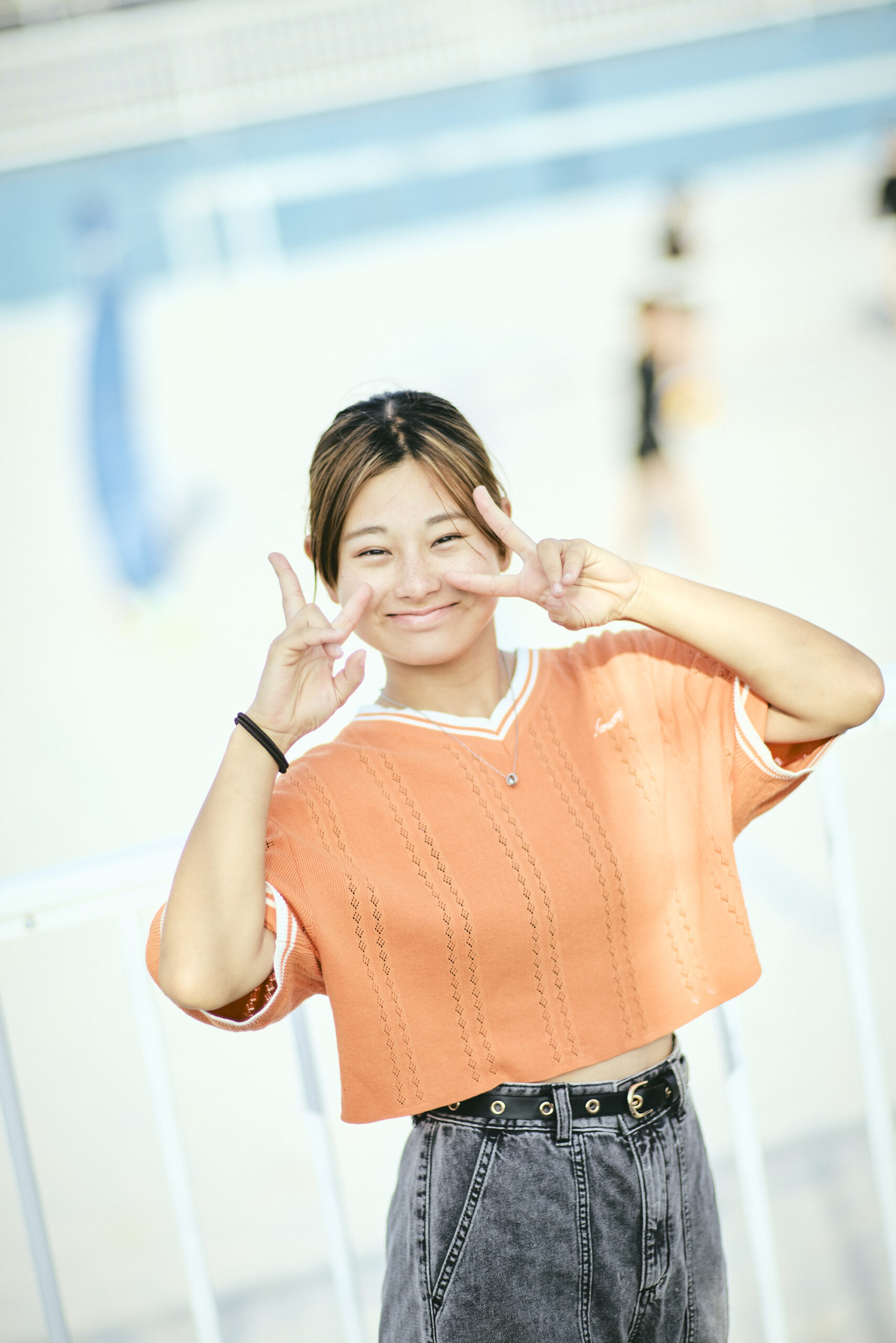
Instagram:tamaki_dbeachvb12
text by Hiromi Hiraki
photographs by Uta Mukuo
